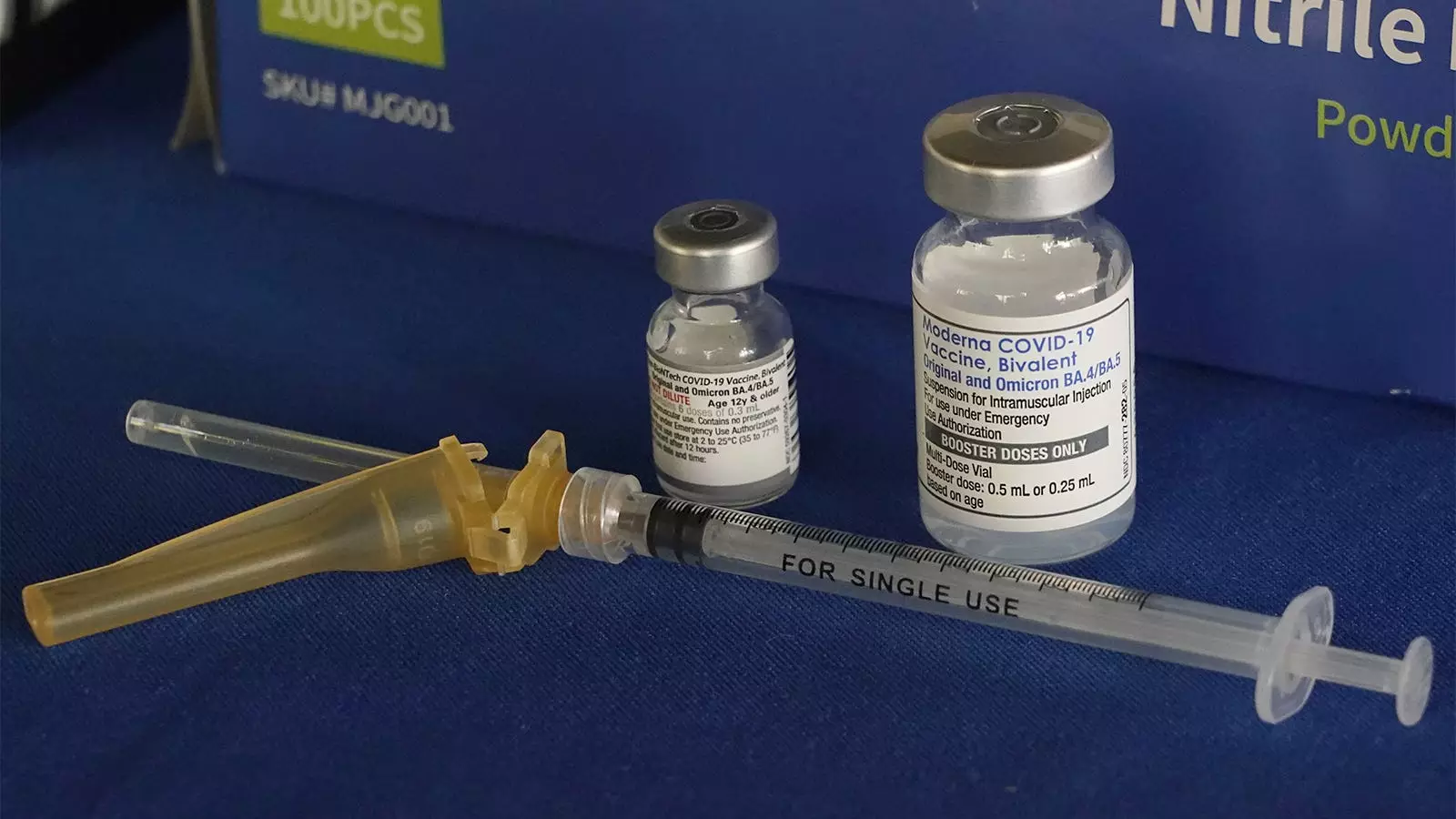In a surprising development that may have far-reaching implications, the Southwest District Health Department in Idaho has become the first public health body in the United States to halt the administration of COVID-19 vaccines across six counties. This decision, facilitated by a narrow 4-3 vote from the department’s board, raises critical questions about local health governance and the evolving role of public health departments in responding to infectious diseases. At the core of this dilemma lies the tension between public health responsibilities and the evolving attitudes towards vaccinations amidst a backdrop of declining vaccine uptake.
Vaccinations have been recognized as a fundamental public health function, serving as a first-line defense in controlling the spread of infectious diseases. The public health community generally operates under the tenet that promoting vaccinations contributes to community immunity and protects vulnerable populations. However, in this case, the board’s decision to discontinue vaccinations reflects a growing skepticism around COVID-19 vaccines, fueled by misinformation and polarizing political rhetoric surrounding the pandemic. Adriane Casalotti, a prominent voice in public health advocacy, noted that while declines in vaccinations due to financial constraints and demand have been common, an outright ban based on public sentiment is unprecedented.
This situation is exacerbated by the fact that Idaho holds the highest rate of childhood vaccination exemptions in the country. The consequences of such exemptions were glaringly illustrated last year when the Southwest District Health Department found itself confronting a measles outbreak, a vaccine-preventable disease that sickened several individuals. Their efforts to prevent the spread highlighted the foundational role of vaccines in maintaining public health.
Diminishing Demand and Rising Skepticism
Evidence suggests that there is a significant decline in demand for COVID-19 vaccinations in Idaho. The stark contrast from administering 1,601 vaccines in 2021 to a mere 64 so far in 2024 epitomizes a troubling trend. The hesitation and refusal to vaccinate seem steeped in a larger discourse around vaccine safety, a narrative that has gained traction through various forums, including local protests and national speaking engagements by skeptics of the vaccine. The dimming interest among residents echoes wider sentiments detected across multiple regions in the country, further complicating efforts for public health departments to fulfill their mandates.
In Idaho, many residents have expressed opposition to both vaccine mandates and public funding for vaccinations—an attitude that has evidently permeated the deliberations of the health board. Board Chairman Kelly Aberasturi voiced his skepticism about the vaccines’ efficacy and questioned the integrity of national health officials. These views indicate a broader ideological divide within public health arenas that could influence health policy decisions in increasingly unpredictable ways.
Impact on Vulnerable Populations
A particularly distressing aspect of the board’s decision is its potential impact on vulnerable groups within the community, including those experiencing homelessness, long-term care residents, and individuals involved in complex immigration processes. These groups often lack access to alternative vaccine resources and rely on local public health departments to provide crucial medical services. Dr. Perry Jansen, the district’s medical director, highlighted the ethical dilemma at play, emphasizing that ceasing vaccinations for these underserved individuals is contrary to the health department’s mission.
Aberasturi himself emphasized his empathy for marginalized individuals, having experienced hardships in his past. However, the gap between the policymakers’ lived experiences and those of the community they serve raises concerns about the adequacy of representation and understanding in health decision-making. Ignoring the needs of these vulnerable populations could potentially set a dangerous precedent, hampering efforts to promote public health and protect against future outbreaks.
The Southwest District Health Department’s controversial decision emphasizes the need for clearer communication and more robust public health strategies to build trust in vaccines. While state health officials maintain a recommendation for the COVID-19 vaccine, the growing divide over vaccine perceptions calls for a reevaluation of engagement tactics within communities.
A.J. Aberasturi of the Idaho health department plans to advocate for at least reinstating vaccinations for older residents and those in long-term care facilities in future meetings. This proposal reflects a persistent commitment to protecting the health and well-being of Idaho residents, underscoring the necessity of adapting public health policies to fit the community’s evolving needs amid changing perceptions of vaccines.
As the challenges surrounding vaccine distribution escalate, it remains crucial for public health authorities to navigate through misinformation and skepticism in a way that fosters trust while reinforcing the importance of health equity. The fallout from Idaho’s decision must serve as a cautionary tale for other health departments, emphasizing the precarious nature of public health responsibility in a divided society.



Leave a Reply